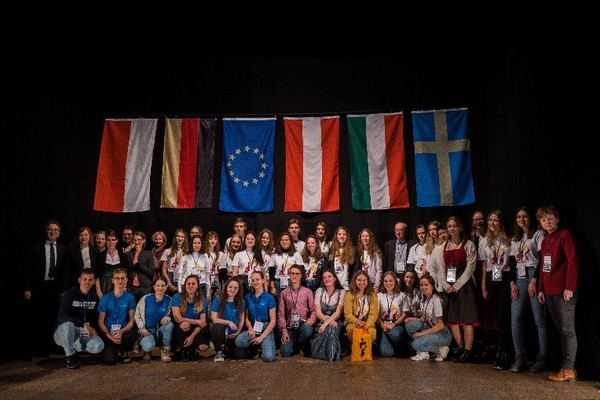"In Europe you rather live for yourself. I did not know that previously but it is very interesting. It creates new, personal opportunities and freedom." ("Once there was Aleppo", Jennifer Benkau)
What does the development of a new European culture entail?
Maria Fellner - 03.01.2020 @ 20:42
New European Culture
by Julian Stöckl, BGBRG Kufstein/Austria
Preface: In this article I concerned myself with the changes of our European culture. To my mind it weren’t the technical revolutions which changed Europe, but the people. Nowadays, Europe is more variegated than ever before, and that’s good! Just 70 years ago racism was rooted deeply in some parts of Europe, but fortunately lots of things have changed. Today it is possible to meet people from all over the world, when you walk through the streets of your hometown.
What does European culture mean to the people?
It is really interesting for me to see what various inhabitants of Europe consider as important for our culture. In a survey, which was conducted by the newspaper “Der Standard” in 2014, most of the interviewed persons considered Human Rights and our freedom to be the most important. I couldn’t imagine to live in a world without democracy, equality or being unable to live in freedom. Of course, such facts as social safety, education and economy were reckoned as important too. Unfortunately, the results weren’t good when it came to the theme “foreign cultures”. The Christian culture shapes Europe and is important for a big part of the people asked, but no other religion like Islam or Judaism is really approved of. Sadly, the answers to questions concerning the protection of minorities or integration weren’t as tolerant as I had hoped. Out of this disappointment, I didn’t even want to trust the results! Luckily, the answers to the same questions in the year 2019 were completely different: Every question, which referred to topics like integration or different cultures got positive answers. I could see a huge gain in intercultural competence. Those results reassure that the new European culture develops from old values and is amenable to new cultures.
How can we strengthen the European culture?
Everyone can do one’s bit, but especially such projects as our Erasmus+ project support our European culture a lot. This project offers us the opportunity to get to know diverse cultures at the same time. During the project meetings, every single participant is able to take part at intercultural interactions, an opportunity you shouldn’t miss! I’m very pleased that so many students from the involved schools are taking part in this project and put effort in it.
How does the European culture change?
In my opinion, especially crises, which put our society to the test, cause transformation. For an example the refugee crisis a few years ago caused a chaos in the beginning, we didn’t know how to handle such a lot of people, but now we are very happy to have a much more diverse society than before! Intercultural exchange is the best opportunity to develop our society!

Foto: Benjamin Hundsbichler
Julian Stöckl - 10.3.2020;16:30
Hey Julian!
I really enjoyed your article. It's awsome that you share my opinion on this topic. The diversity in Europe is a huge win to all of us. We learn more about the cultures, languages or just habits from people all over the world. As you mentioned, Erasmus+ is a perfect opportunity to meet new people and talk about a commun topic. Considering that we have the chance to visit others' homecountries we can experience all the foreign cultures by ourself!
You also talked about crises Europe has to overcome. I believe that Europe is a strong union. Also the European Union stands for freedom and diversity. We need to prodect this by all costs and have to solve problems as one union. In the history of the human race we have already stood up for each other and I am confident that we will do it again.
Sara Ben Touhami - 16.09.2020 @ 16:25